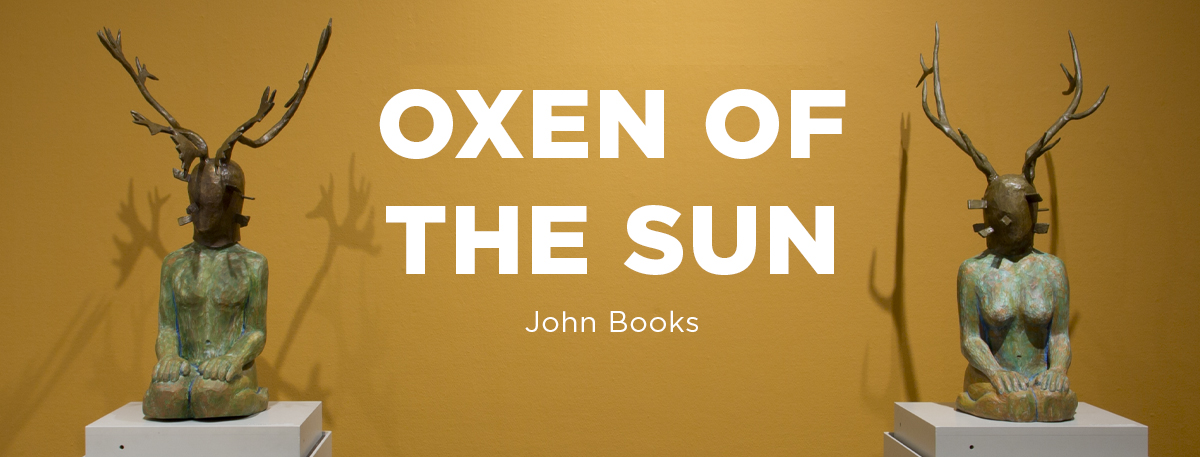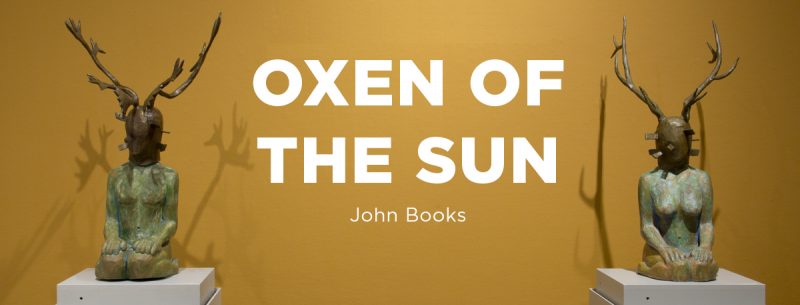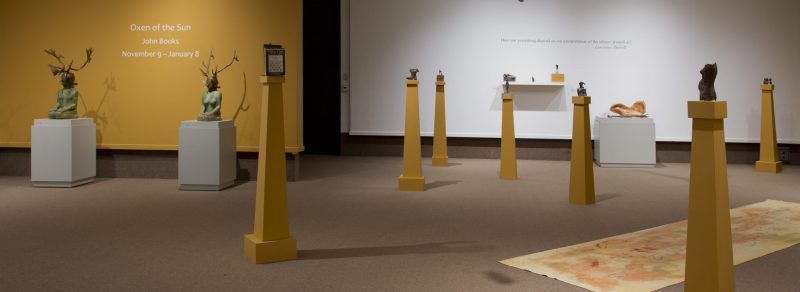Oxen of the Sun

Oxen of the Sun

Six years ago, images of two intercessors appeared to me. Part human and part animal, they woke me one morning, intermediaries to assist my understanding of what was happening in the world.
This show has been a journey of ideas and feelings, spanning many years. It is a story told by small bronze figures and larger sculptures. It is an old story of return and love, of wandering, of searching for home, and most importantly: a search for hope.
For years, I despaired of the seeming inability of human beings to moderate the gratification of their needs and desires so as to preserve the conditions that sustain them. After much searching, I came to see that this behaviour, despite repeated examples of disaster, has been there from the beginning. It must have been successful in evolutionary terms. How is it then, essential to the process?

Creative pursuits encourage genius and idiocy. The same ability that allows us to attend to our needs is also manifest in our talent to create chaos. And the whole of humanity pursuing individual paths, whether playful or serious, thoughtful or thoughtless, gives us as much reason to hope as to despair.
Over thousands of generations, creativity has been selected genetically: it is a part of our DNA. The ability to tell stories is not a frill, certainly not irrelevant. It is us. And the havoc that necessitates novel solutions is inevitable. Both science AND art are essential to our existence, allowing us to imagine, to question, to wonder …
Forty-five thousand years ago, our ancestors, with care and artistry, painted horses, hippopotami, and the great aurochs on the walls of Chauvet Cave in France. I imagine, today, “the Minotaur” in the CERN tunnel, that torus costing billions of dollars, straddling the border between France and Switzerland, waiting for the Higgs-Boson particle to announce itself, a messenger from beyond, the “Ox of First Principles.”
This exhibition is a tribute to words and to the silences between them.
— John Books
Oxen of the Sun refers to a passage in Homer’s The Odyssey where Ulysses and his crew, having survived many dangers together, are stranded on the island of Thrinakia, due to unfavourable winds and after a month are without food or water. They had been repeatedly warned that if they landed on this particular island, they were not to harm the sacred oxen that belonged to Helios, the Greek god of the Sun.

